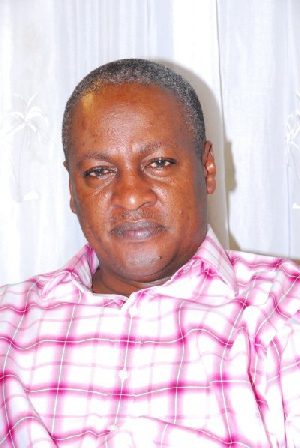Accra, April 22, GNA - Ghana's struggle to attain energy sufficiency has been given a big boost following the completion of the first phase of an estimated 600 million-dollar plant being implemented by a joint Ghana-Sino consortium, the Sunon Asogli Power project.
The completion of the 200 megawatts project, which is expected to be operational next month, would help in ensuring energy security, with prospects of exporting the vital commodity to other energy starved nations in the West African sub-region.
Management of the project met with Vice President John Mahama at the Castle, Osu, on Wednesday, to discuss issues that have saddled the commencement of the second phase of the project which is located at Kpone, near Tema.
The Agbogbomefia of the Asogli State, Togbe Afede XVI, led the delegation that also included the Shenzhen Energy Group of China and the China African Development Fund, the other partners in the project. Briefing the Vice President, Togbe Afede said completing the 560 megawatts project could change the spectre of energy shortfalls that had bedevilled the country.
Such support, he said, could free more budgetary resources for government to address rural development difficulties. Topical issues affecting the consortium, Togbe Afede said, included failure in getting sufficient gas supplies from Nigeria and the slow pace in completing a metering project that would help connect independent power producers to the national grid. He said the failure to deal with the two problems could disrupt plans to complete the second phase of the project which would bring on-stream an additional 360 megawatts before the end of next year. Responding, the Vice President commended Togbe Afede for his foresight in bringing about the project and the Chinese businessmen for their interest in the Ghanaian economy.
He assured the delegation that the issues raised would be tackled at the highest level with the Nigerian government to ensure that sufficient gas was provided to the company under the West African Gas Pipeline Project so as to attract other entrepreneurs to the energy sector. This, he said, fitted in government's policy to increase the national energy capacity to about 5,000 megawatts in the next four years.
He entreated the Chinese partners to go ahead with the second phase of the project as government worked around the clock to remove obstacles. Mr Huang Fu Han of the Shenzhen Energy Group, also pleaded with the government to help ameliorate the difficulties that had been encountered.
Ghana has been saddled with insufficient energy requirement in recent times due to production shortfalls in meeting demands and unreliability of rain fall that had affected the efficiency of the nation's main power supply, the Akosombo hydro plant.
A new state policy that allows independent power producers a foothold in the energy production was to help scale up the process of industrialization and create more jobs. 22 April 09
General News of Wednesday, 22 April 2009
Source: GNA

















